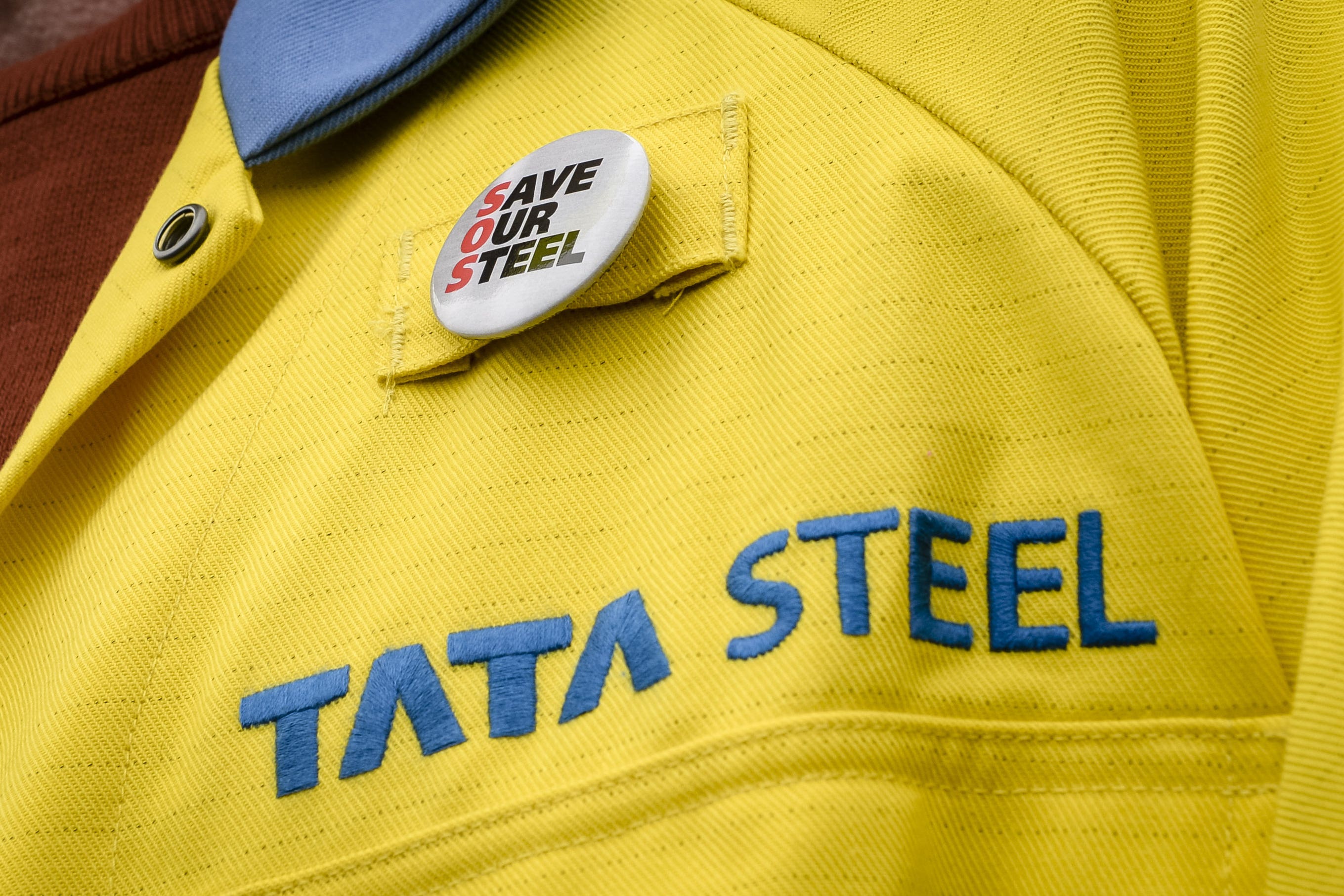Support urged for older workers affected by steel plant job losses
Tata Steel is to shift to low carbon production at its site in Port Talbot, South Wales.

Your support helps us to tell the story
From reproductive rights to climate change to Big Tech, The Independent is on the ground when the story is developing. Whether it's investigating the financials of Elon Musk's pro-Trump PAC or producing our latest documentary, 'The A Word', which shines a light on the American women fighting for reproductive rights, we know how important it is to parse out the facts from the messaging.
At such a critical moment in US history, we need reporters on the ground. Your donation allows us to keep sending journalists to speak to both sides of the story.
The Independent is trusted by Americans across the entire political spectrum. And unlike many other quality news outlets, we choose not to lock Americans out of our reporting and analysis with paywalls. We believe quality journalism should be available to everyone, paid for by those who can afford it.
Your support makes all the difference.Concerns have been raised about the future job prospects of older workers set to be affected by the shutdown of blast furnaces at the country’s biggest steel plant.
Tata has decided to press ahead with a shift to low carbon production at its site in Port Talbot, South Wales.
The move will lead to the loss of up to 2,800 jobs and more in firms which supply the plant with goods and services.
Tata is pledging a £130 million support package to help workers retrain or find new jobs.
Unions have warned the decision will be devastating for the South Wales economy as well as the steel industry.
The Centre for Ageing Better said older workers are much more likely to face long-term redundancy, and even enforced retirement, amid such heavy job losses.
The group, which offers help and advice to older people, said its research in similar industries in the West Midlands revealed specific support for older workers is needed to help them cope with the trauma of job loss, often after many years of service, and to help them find new work.
Emily Andrews, deputy director for work at the group, said: “We know this is an industry with comparatively more older workers, and so a large proportion of the people facing redundancy will likely be over 50.
“Many will never have worked in a different organisation, let alone a different industry.
“The statistics tell us the struggle that workers over 50 face when made redundant. They are three times less likely to return to work within three months than those under 50.
“This is a huge waste of talent. Our own research and support work tells us that confidence-building, space to process the grief, high-quality group coaching, and straightforward CV support can make a huge difference in these circumstances.
“Older workers going through the trauma of redundancy, particularly after many years of loyal service, need space to process shock and grief as well as encouragement to look at their needs, aspirations and transferable skills.
“We welcome the commitment from Tata Steel of a comprehensive support package to mitigate the impact of any anticipated job losses, including helping employees to retrain and find new jobs.
“But these words will need to be backed up by action, and we hope that high-quality redundancy support will be made available, with specific support in place for older workers.
“Our work shows that a group coaching service for shop-floor workers over 50 can make a real difference to their ability to navigate the jobs market they will now be facing.”